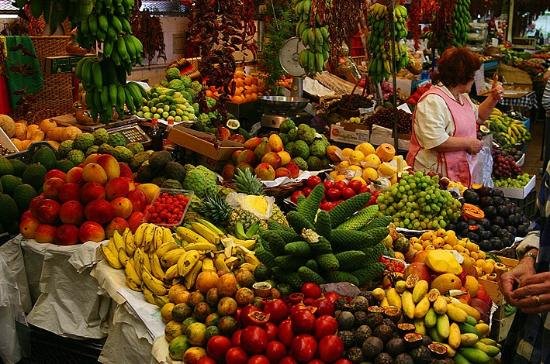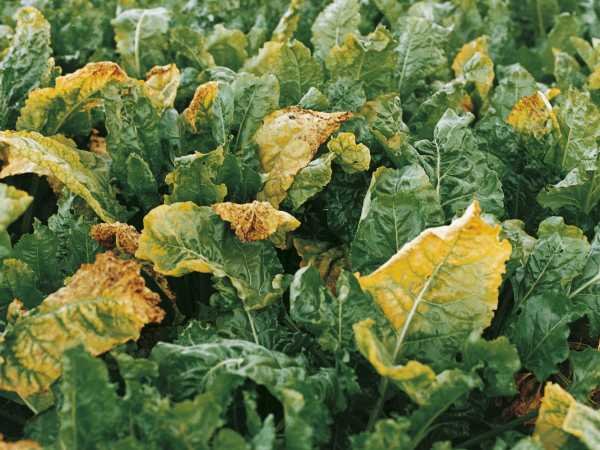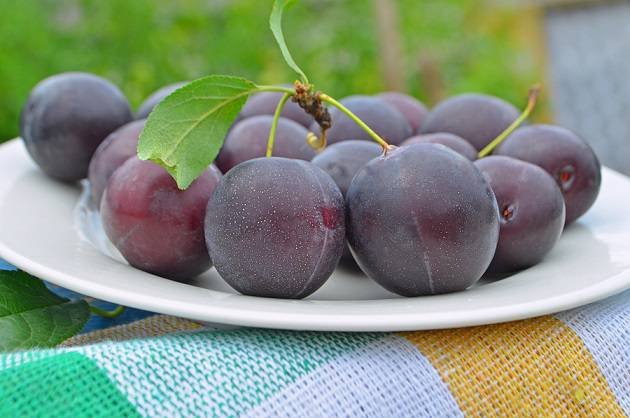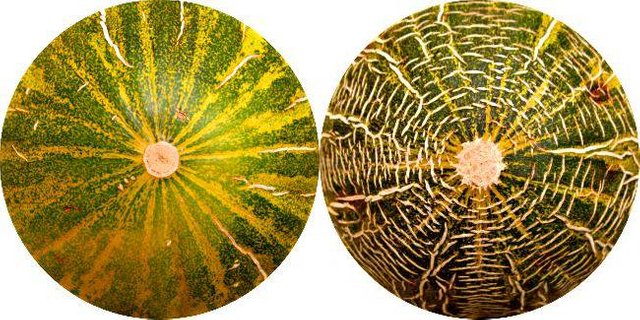How to select fruits and vegetables?
Hello Steemit!
Many people usually wonder how to recognize the good or bad quality of the food they buy in the market. Here are some tips.

Fruit and vegetable market. To see the source, click here.
How to choose legumes and vegetables?
Usually, the quality of the legumes can be known by its package, which specifies the date of packaging and the date of expiration. Similarly, it is advisable to check that the production is from that year, as it can result in very hard grains and even contain bugs and insects.
Celery, chard, aubergines, courgettes, artichokes and all these food in general, are expected to be as fresh as possible and have no yellow stripes, that is, have a good appearance.

Beets in poor condition. To see the source, click here.
For the case of artichokes, the best way to know if they are fresh or not, is by folding one of their leaves. If they split is that they are fresh, if not, then the leaf will bend but will not split. In general, what you have to take into account is to know which vegetables correspond to each season.
The following annual calendar presents the vegetables that can be consumed according to their production season:
Winter: Chard, chicory, artichoke, celery, beet, cabbage, cardoon, carrot, cauliflower, Brussels sprout, scallop, turnip, onion, fennel, endive, lettuce, potato, leek, radish, spinach, cabbage, squash, watercress.
Spring: Artichoke, carrot, cabbage, onion, asparagus, watercress, tender bean, broad bean, lettuce, potato, pepper, tomato, endive, mushroom, turnip, radish, celery, spinach, zucchini, beet, cucumber, eggplant, pea, leek.
Summer: Chard, carrot, cucumber, beet, watercress, onion, bean, mushroom, tender bean, endive, lettuce, eggplant, potato, pepper, pea, tomato, celery, spinach, zucchini, radish, cabbage.
Autumn: Chard, carrot, cucumber, cauliflower, tender bean, onion, mushroom, bean, endive, lettuce, eggplant, thistle, cabbage, escarole, fennel, turnip, mushroom, squash, leek, beet, celery, tomato, potato, pepper, zucchini.
The same advice applies to all vegetables and legumes: Look at the natural aspect and avoid those with yellow spots and bumps, ensure that they have not been infected with their cash mates and buy products from the country, because the time it takes to transport them is shorter, and therefore, they are fresher.
For the special case of potatoes, it is important that these do not have spots, especially those of green color, which indicates the presence of a substance toxic to the body.

Potato with green spots. To see the source, click here.
When choosing aubergines, it should be noted that they have an elongated pear shape and that they are heavy when taken (as long as they are heavier, the seed content is lower).
Which fruit is convenient to buy?
Like vegetables, fruits should be purchased preferably in their corresponding season, and unless you need otherwise, it is better to buy the fruit when it is neither very ripe nor very green (which is not going to mature, especially in Spring).
The following annual calendar presents the fruits that can be purchased according to their production season:
Winter: Orange, pineapple, banana, avocado, apple, tangerine, grapefruit, pear, date, fig, peanut, almond, walnut, hazelnut.
Spring: Avocado, orange, tangerine, grapefruit, strawberry, apple, medlar, pear, date, fig, peanut, almond, hazelnut, apricot, pineapple, cherry, raspberry, plum, currant, banana.
Summer: Orange, melon, banana, apple, peach, plum, almond, peanut, watermelon, fig, strawberry, raspberry, pear, grape, blueberry, apricot, hazelnut.
Autumn: Chestnut, banana, persimmon, apple, fig, pear, peach, grape, peanut, almond, hazelnut, orange, pomegranate, quince, pineapple, avocado, tangerine, grapefruit.
How to choose the plums?
The main advice is not to choose those plums that are bright. When the plums, other vegetables and fruits are fresh, they are covered with an opaque layer. Then, when the plums are manipulated or stored, they lose that layer. It is also not convenient to select those that look transparent because this denotes a mealy flesh.

Fresh plums. To see the source, click here.
How to select the unpredictable melon?
When buying a melon, it is necessary to take into account the following aspects:
- Choose preferably female melons. The difference between the male and female melon, is that the heart of the male melon is more elongated than the female one.

Male melon (left) and female melon (right). To see the source, click here.
- The cracking of the skin should be well marked.
- If the base of the melon is resisted when it is twisted, it means that it is green. Otherwise, it would break.
- Choose a melon that has a grainy appearance.
For the special case of lemon, it is preferable to choose the roundmost lemons.
When choosing raspberries, it is convenient to look at the bottom of the container, because if it is very stained, it is likely that the raspberries inside are crushed or rotten.
Fortunately, science has now facilitated the preservation of food, making it relatively easy to buy what is necessary without risks of having food in poor conditions; however, some clues are always needed.
Source:
García, E. (1999). Vida Práctica. Trucos de Cocina. Editorial Ágata, España.
Thank you for reading!
Hola @deyra, upv0t3
Este es un servicio gratuito para nuevos usuarios de steemit, para apoyarlos y motivarlos a seguir generando contenido de valor para la comunidad.
<3 Este es un corazón, o un helado, tu eliges .
: )
N0. R4ND0M:
9300 7934 9949 8494
6037 6984 9352 9167
7372 1650 6611 5794
7478 3646 6193 9516
Congratulations @deyra! You received a personal award!
Click here to view your Board
Do not miss the last post from @steemitboard:
Congratulations @deyra! You received a personal award!
You can view your badges on your Steem Board and compare to others on the Steem Ranking
Vote for @Steemitboard as a witness to get one more award and increased upvotes!